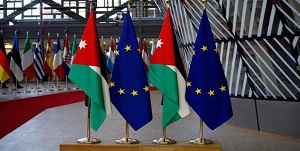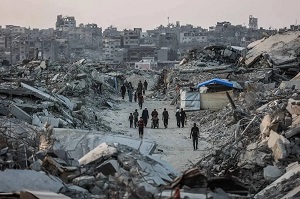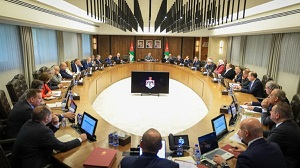Iran Fell in the Trap - Salman Al-dossary, Alarabiya
When Iran posted a video of five masked Revolutionary Guards troops landing from a helicopter on the surface of British-flagged tanker Stena Impero, seizing the ship, forcing it to head to the port of Bandar Abbas and raising the Iranian flag on it, it did so proudly to assert its influence on the Strait of Hormuz and its ability to control between 30 and 40 percent of sea-transported oil worldwide. It also did so in retaliation for Britain’s detention of an Iranian oil tanker in Gibraltar.
However, the Iranian regime, without knowing, fell into the trap that was set for it. The dangerous behavior of seizing the British tanker, as pirates do in the Horn of Africa, turned the European compass, which has long been neutral in the battle between the United States and Iran, towards an alignment with the US stance.
Britain immediately announced the formation of a maritime protection force led by Europe to protect shipping in the Strait of Hormuz, and London is working to urge the European Union and the United Nations to re-impose sanctions on Tehran, which were suspended in 2016. That in addition to the freezing of Iranian assets in the United Kingdom.
Thus, the international position against Iran is being reshaped and is no longer seen as a US-Iranian conflict with Europe on the sidelines. The European countries have gradually entered the battle after watching from afar.
After the fall of Iran into the trap, Europe and the United States are now almost on the same bank. The only difference lies in their handling of the crisis. While Washington is strict and preparing the punishment, European capitals are against escalation or any action that causes war in the region.
The truth is that all are against this war, in which everyone will lose. But Iran’s loss will be catastrophic. Undoubtedly, the engagement of European countries, through maritime alliances, to face Iranian provocations, will put them in direct confrontation with Tehran’s aggressive behavior and make them unable to release statements on “self-constraint”.
If the United States and its allies in the region, led by Saudi Arabia, are directly opposing Iran and its tyranny, the circle has recently expanded with the accession of European capitals, which in turn will not remain silent as Tehran makes more provocations through tanker wars and disruption of oil supplies through a vital artery such as the Strait of Hormuz.
After Iran faced the world with a contradictory message that tension in the Gulf was due to its direct confrontation with Washington and Riyadh, the number of countries opposing it increased after the joining of major world powers against it.
In the coming days, the circle is expected to expand to put Iran in a corner from which it has been fighting to get out. Today, it faces two bitter choices: either to surrender to the severe sanctions, leading it to negotiations in which it will accept harsh conditions that would return it to the international community and stop its nuclear project; or to continue its provocations, but this time it will be confronted by the entire international community.
As the crisis moves to option B - the military action - the conflict will not be limited to the United States and Saudi Arabia against Iran, but will extend to the whole world against Iran. This will weaken Tehran’s position militarily and diplomatically and drive it towards the unknown.
In 1987, Operation Earnest Will was launched to protect oil tankers in the waters of the Gulf, in response to an escalation by Iran, when the Revolutionary Guards confronted Western naval forces in the waters of the Gulf during the Iran-Iraq war. This decision, however, had a terrible backlash against the Iranian regime, giving Western governments the pretext to ally against it.
The Iranian ship attacks left little impact on tankers, oil supplies or oil prices, but escalated the confrontation with Western military forces, culminating in a large Iranian naval defeat by the US Navy in 1988, and certainly the final result this time will not differ greatly.
Latest News
-
 EU Parliament greenlights €500 million aid package for Jordan
EU Parliament greenlights €500 million aid package for Jordan
-
 Safadi, Palestinian vice president discuss Gaza ceasefire, escalation in West Bank
Safadi, Palestinian vice president discuss Gaza ceasefire, escalation in West Bank
-
 King, Lebanon president discuss regional developments
King, Lebanon president discuss regional developments
-
 Israel Defense Minister Vows to Stay in Gaza, Establish Outposts
Israel Defense Minister Vows to Stay in Gaza, Establish Outposts
-
 Cabinet suspends mandatory retirement rules, approves funding measures
Cabinet suspends mandatory retirement rules, approves funding measures